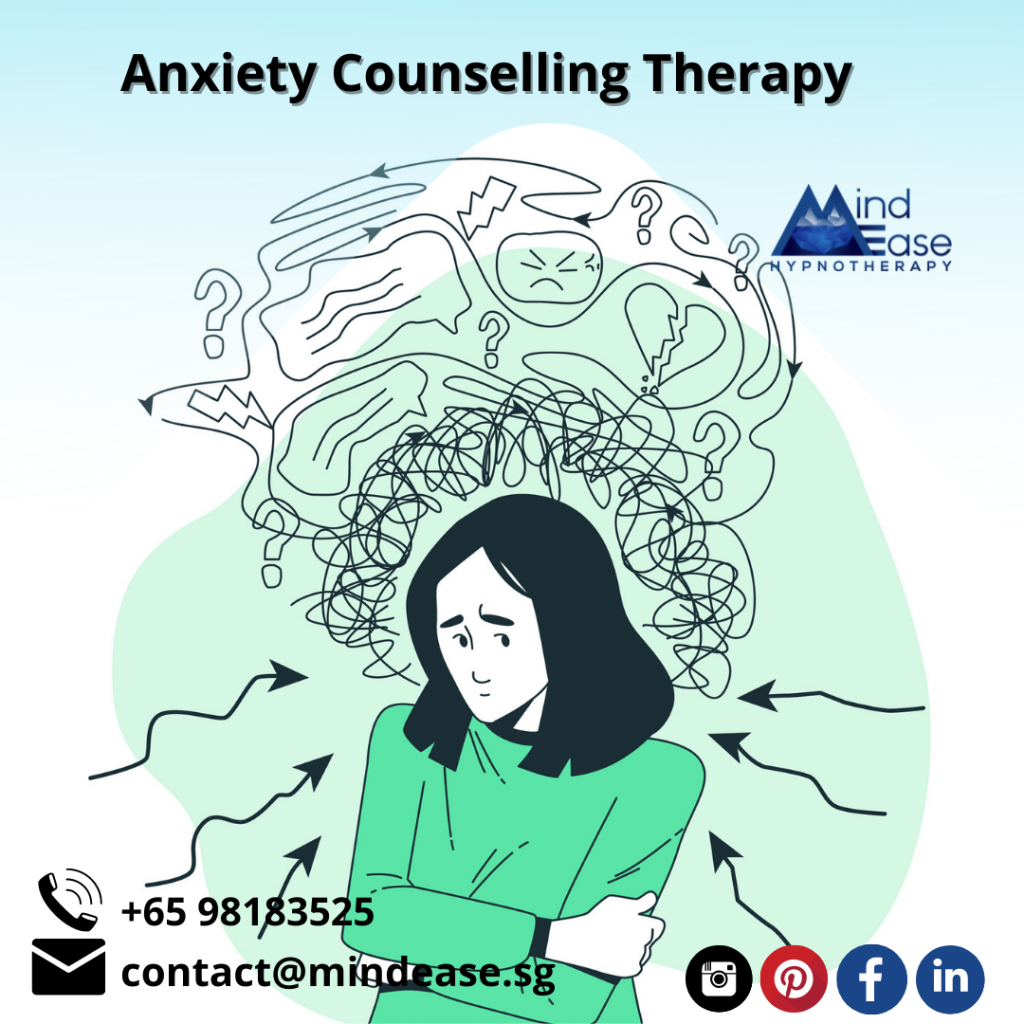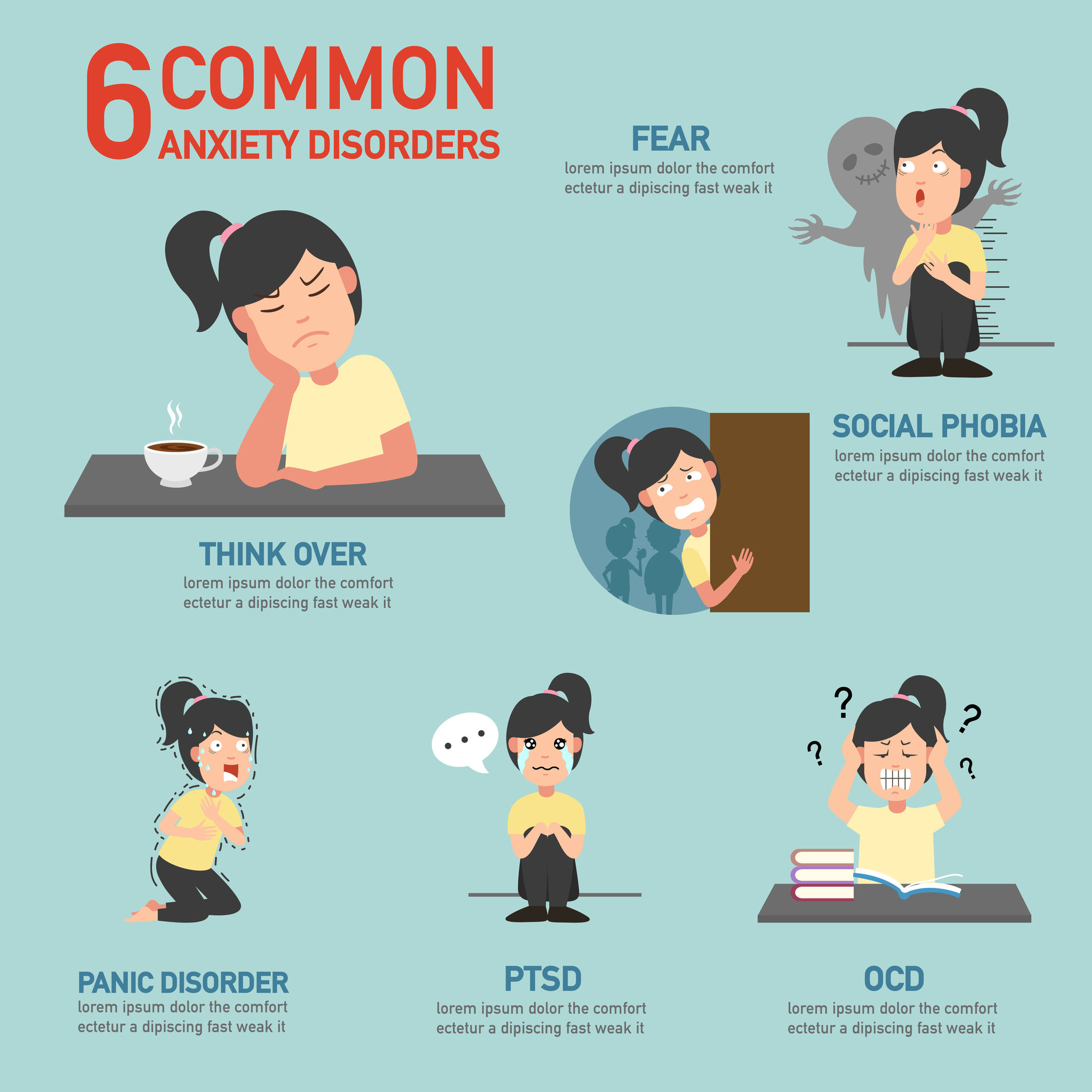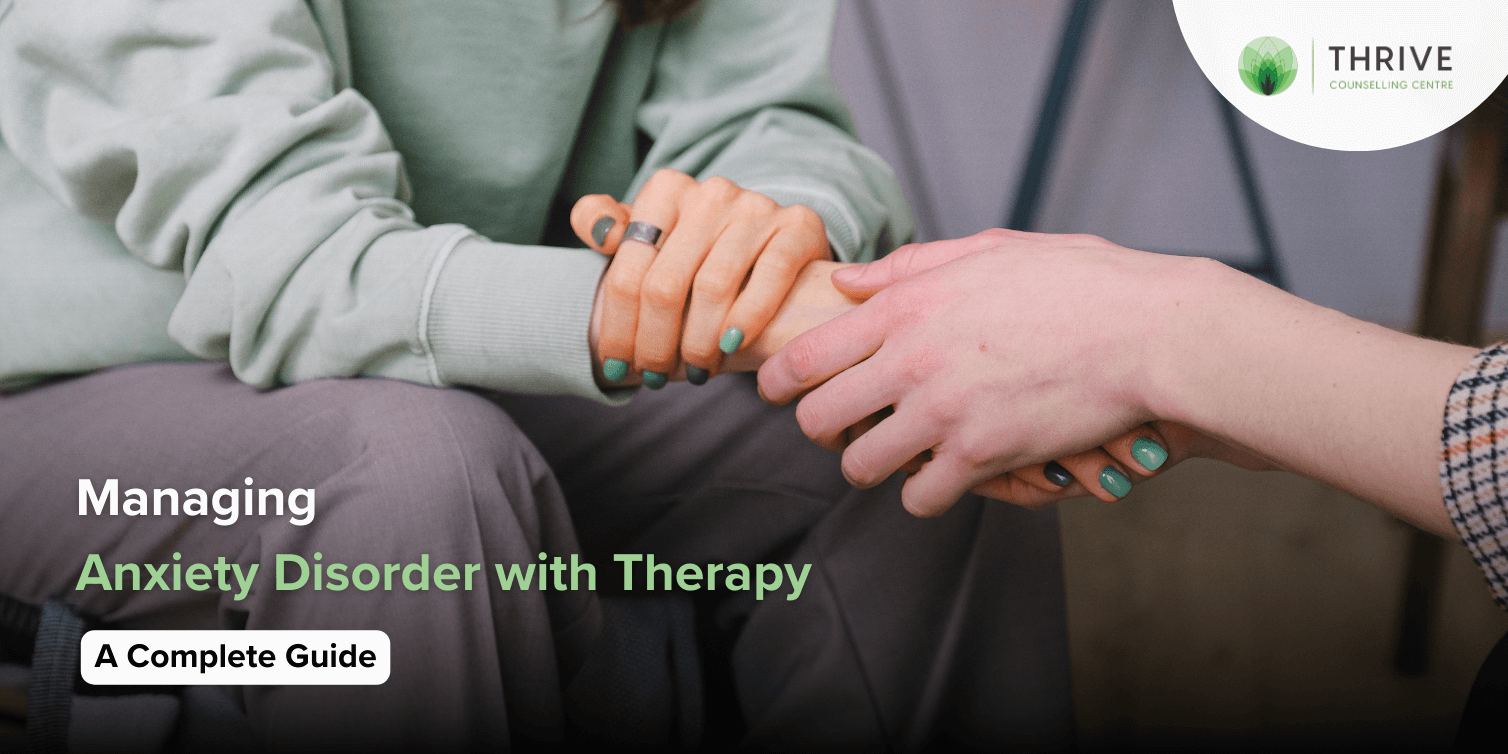Exploring Various Techniques in Counselling for Anxiety Condition for Enduring Modification
When tackling anxiousness disorders, it's vital to discover a variety of counseling strategies. Each technique uses one-of-a-kind understandings and devices to aid you manage your signs and symptoms effectively. You may discover that incorporating methods can produce the ideal outcomes. Nonetheless, recognizing the nuances of these approaches is essential to promoting long lasting change. What happens if the ideal combination could release a brand-new degree of emotional wellness for you?
Understanding Anxiousness Conditions: A Quick Introduction
Anxiety disorders, which influence countless individuals worldwide, can greatly impact life. You could experience frustrating sensations of anxiety or fret that seem uncontrollable. These sensations can bring about physical signs like an auto racing heart, sweating, and even lightheadedness. Typical sorts of anxiety disorders include generalised stress and anxiety problem, panic attack, and social stress and anxiety disorder. Each has one-of-a-kind indicators, however they all share a propensity to interrupt your routine and relationships.Understanding the origin of your anxiousness is important. It might stem from genes, brain chemistry, or life experiences. Acknowledging your triggers can aid you handle your feedbacks much better. It is necessary to keep in mind that you're not alone in this struggle. Lots of people deal with similar obstacles, and seeking assistance is a solid step towards sensation much better. By finding out regarding anxiousness problems, you're currently on the course to understanding and managing your problem a lot more efficiently.
Cognitive-Behavioral Therapy: Challenging Adverse Idea Patterns
In Cognitive-Behavioral Therapy, you'll start by recognizing the negative thought activates that contribute to your stress and anxiety. You'll work on replacing them with more positive alternatives as soon as you acknowledge these ideas. With each other, you'll build effective coping strategies to assist manage your stress and anxiety in daily circumstances.
Determining Negative Idea Triggers

When you run into minutes of distress, identifying the specific triggers behind your negative ideas can be necessary in handling stress and anxiety. Beginning by paying attention to circumstances that prompt sensations of concern or worry. Is it a crowded space, an approaching deadline, or a discussion with certain people? Write down these circumstances in a journal. This will certainly assist you recognize patterns in your reasoning. Notification physical sensations that accompany your unfavorable thoughts, like a racing heart or tightness in your chest. By identifying these triggers, you gain insight into what's sustaining your anxiousness. Recognizing these links is the initial step in challenging those thoughts and ultimately gaining back control over your emotional reactions.
Replacing Thoughts With Positives
Challenging negative idea patterns is an important step in changing your way of thinking and lowering anxiousness. You may usually find yourself entraped in cycles of insecurity or disastrous reasoning. Rather of letting these ideas determine your sensations, method replacing them with practical choices or positive affirmations. As an example, when you believe, "I can't manage this," shift it to, "I can handle obstacles one step at a time." This simple change can greatly impact your mood. Routinely recognizing and responding to these adverse thoughts helps create a much healthier internal dialogue. Bear in mind, it takes some time and effort, yet continually exercising this technique can cause long lasting adjustment, encouraging you to face anxiety with restored self-confidence and resilience.
Building Coping Strategies With Each Other
Changing adverse ideas is just the beginning of handling stress and anxiety efficiently. To create lasting change, you require to construct coping methods that empower you. Cognitive-Behavioral Treatment (CBT) assists you determine and test those unhelpful thought patterns. With each other, you and your counselor can discover just how these ideas effect your sensations and behaviors.Start by developing practical strategies, like journaling or mindfulness workouts, that enable you to face anxiousness head-on. When you face your concerns slowly, you'll find out to respond in a different way.

Mindfulness and Acceptance-Based Approaches: Cultivating Present-Moment Understanding
As you browse the intricacies of anxiety, integrating mindfulness and acceptance-based techniques can substantially improve your ability to grow present-moment awareness. By concentrating on the present moment, you'll discover that you can observe your thoughts and sensations without judgment (Counseling services for anxiety). This practice helps you recognize your stress and anxiety without really feeling bewildered by it.Engaging in mindfulness workouts, such as deep breathing, body scans, or led reflections, permits you to ground on your own in your current experience. Acceptance-based approaches encourage you to welcome your emotions instead of deal with versus them. They shed their power over you.Incorporating these techniques into your everyday regimen can transform how you respond to anxiety when you accept your feelings. You'll develop durability and find out to browse stressful situations with higher simplicity. Inevitably, cultivating present-moment awareness lays the structure for long-term modification, empowering you to lead an extra meeting life
Exposure Treatment: Challenging Concerns Slowly
Direct exposure treatment aids you confront your fears in a progressive method, making it much less overwhelming. You'll find out techniques to face anxiety-provoking situations detailed, while additionally building coping techniques to handle your responses. This approach encourages you to take control and decrease anxiousness in time.
Gradual Exposure Techniques

When facing anxiousness, progressively facing your worries can be an effective way to restore control. This strategy, referred to as progressive direct exposure, entails gradually exposing yourself to the circumstances or things that cause your anxiousness. Start with much less daunting situations and gradually work your method approximately more challenging ones. If you're scared of public speaking, you may begin by speaking in front of a mirror, then progress to sharing ideas with a buddy, and eventually deal with a little group. Each action helps desensitize you to the concern, developing your confidence over time. Bear in mind, it's vital to rate yourself and commemorate tiny triumphes as you relocate through this process, enhancing your capacity to manage anxiety effectively.
Building Coping Methods
Building reliable coping methods is essential for managing anxiety, especially as you face your concerns progressively - Counseling services for anxiety. One powerful approach is direct exposure treatment, where you begin by facing your anxieties in a controlled way. Begin with less daunting situations and slowly work your method approximately even more tough scenarios. This progressive direct exposure aids desensitize you to stress and anxiety activates, making them much less overwhelming.Incorporate relaxation techniques, such as deep breathing or mindfulness, to calm your mind throughout direct exposure. Track your progress, celebrating little triumphes in the process to boost your self-confidence. Remember, it's fine to take your time; the objective isn't excellence yet stable improvement. By constructing these strategies, you'll encourage on your own to browse stress and anxiety and accept life a lot more fully
Psychodynamic Treatment: Discovering Root Causes of Anxiousness
Psychodynamic therapy checks out the unconscious mind, revealing the root triggers of your anxiety. By examining your thoughts, feelings, and past experiences, this approach helps you discover underlying problems and unsettled problems that may add to your present anxiousness. You'll collaborate with a therapist to check out childhood years experiences, partnerships, and psychological patterns that form your actions today.As you get understanding into these much deeper layers of your subconscious, you'll start to acknowledge just how previous occasions affect your existing behavior. This understanding can cause catharsis, enabling you to process feelings you might have suppressed.Through the restorative connection, you can additionally determine defense reaction that might have established gradually, offering a more clear course to alter. Inevitably, psychodynamic therapy furnishes you with the tools to address your anxiousness at its core, promoting long-term makeover in your emotional wellness.
All Natural and integrative Strategies: Integrating Techniques for Greater Effectiveness
Incorporating various therapeutic strategies can enhance your trip towards managing stress and anxiety much more properly. By combining components from cognitive-behavioral therapy, mindfulness practices, and alternative strategies, you can create a personalized method that addresses your distinct requirements. You may make use of cognitive-behavioral strategies to test adverse idea patterns while including mindfulness exercises to ground yourself in the existing moment.Additionally, exploring all natural methods such as yoga or meditation can promote leisure and minimize stress and anxiety symptoms. This mix permits you to create greater self-awareness and resilience.Experimenting with these diverse methods can help you discover what reverberates most with you. Remember, it has to do with discovering a synergy that works, as opposed to staying with a solitary technique. This integrative approach not just provides prompt relief yet also cultivates long-term abilities for taking care of stress and anxiety, empowering you to redeem control over your life.
The Role of Assistance Systems: Building Durability Via Link
While it could appear that handling anxiety is a singular journey, having a solid support group can play a crucial function in your strength. Surrounding yourself with compassionate friends, family members, or support groups produces a secure room where you can openly share your feelings and experiences. When you get in touch with others, you remind yourself that you're not alone in this struggle.These partnerships provide motivation and can supply sensible coping strategies that have benefited others. It's additionally a chance to acquire point of view; buddies can help you see circumstances in a different way, reducing feelings of isolation.Moreover, emotional support cultivates a feeling of belonging, which can greatly reduce stress and anxiety symptoms. By leaning on your support group, you can construct strength and take on challenges much more properly. Bear in mind, connecting for assistance signifies stamina, and it can make all the distinction in your trip toward managing stress and anxiety.
Frequently Asked Concerns
What Are the Usual Symptoms of Stress And Anxiety Conditions?
You could experience restlessness, tiredness, problem focusing, irritability, muscular tissue stress, and sleep disturbances. Physical symptoms can include fast heartbeat, sweating, and shivering. Acknowledging these indicators early can aid you look for appropriate support and treatment.
How Much Time Does Treatment Generally Last for Stress And Anxiety Conditions?
Therapy for stress and anxiety conditions usually lasts anywhere from a couple of weeks to a number of months. It truly relies on your individual needs, progress, and the methods your specialist utilizes to help you manage your anxiety effectively.
Can Medication Be Used Along With Treatment for Stress and anxiety?
Yes, medicine can certainly be utilized alongside therapy for anxiousness. Incorporating both strategies usually improves treatment performance, assisting you handle signs while exploring underlying issues via counseling (Counseling services for anxiety). Constantly consult your medical care copyright for tailored guidance
Are There Self-Help Approaches for Handling Anxiety?
Yes, there are numerous self-help methods for handling anxiety. You can exercise mindfulness, engage in regular exercise, maintain a balanced diet regimen, establish a regular, and use deep breathing strategies to help in reducing anxiety signs and symptoms successfully.
How Do I Know if I Required Expert Aid for Anxiousness?

Comments on “Discover meaningful relief with a licensed therapist for anxiety you can trust”